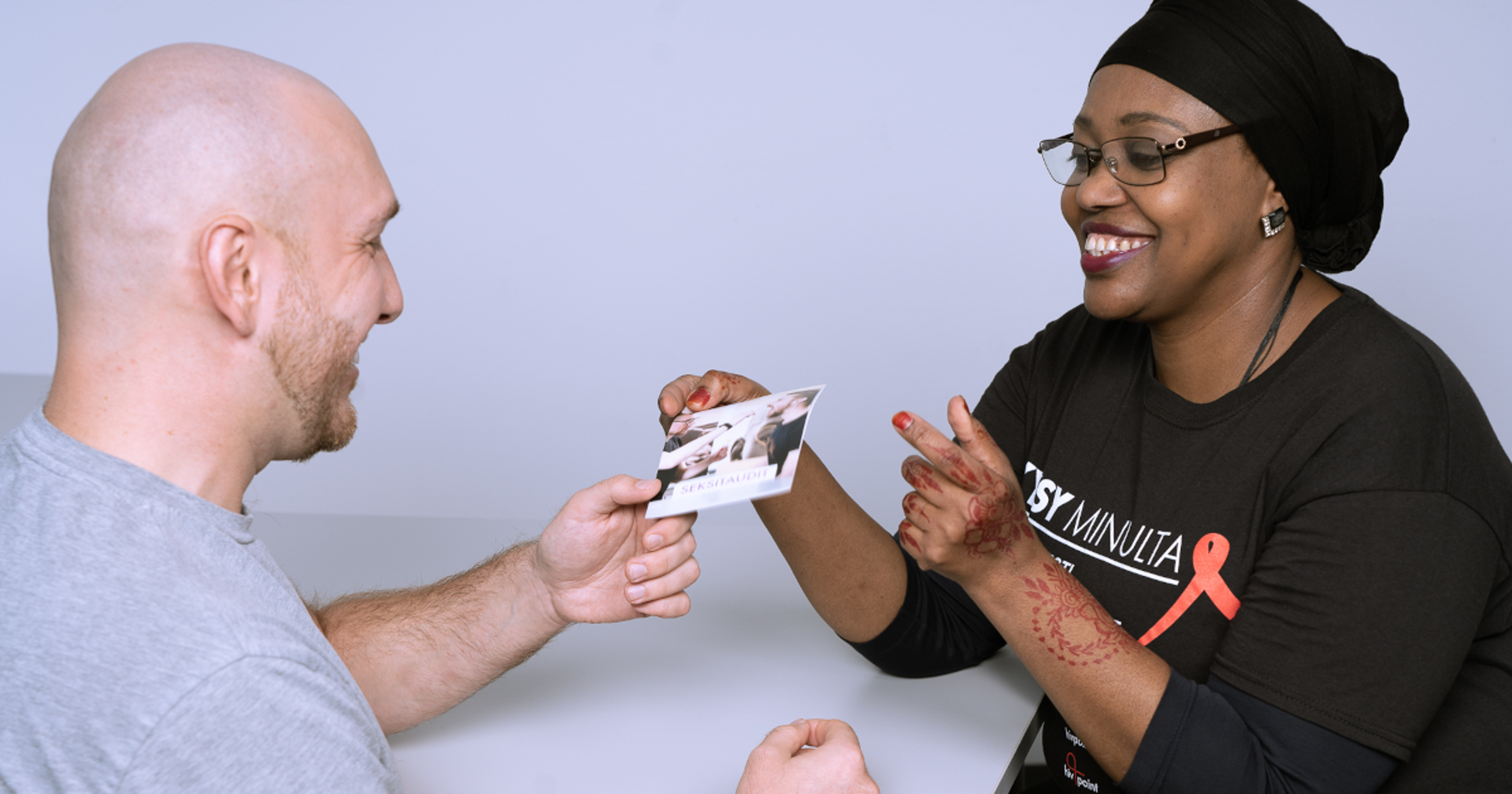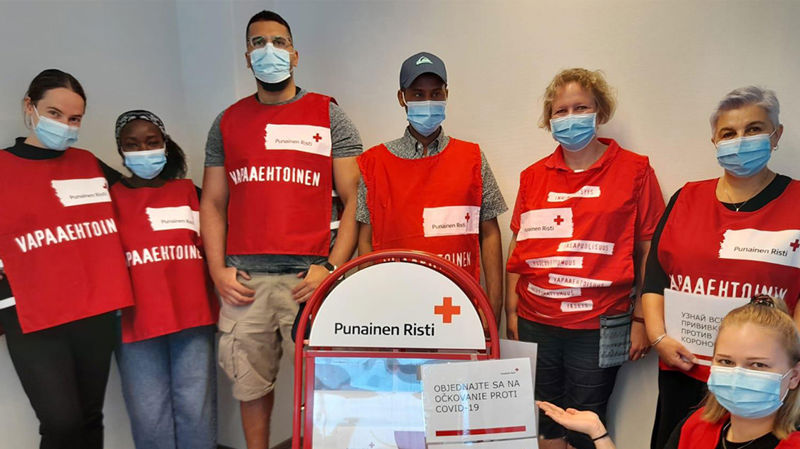Everyone is entitled to information about HIV in their own language

Organisations fighting against HIV emphasise that information about HIV and sexual health must be made available in a language understood by the person needing this information. The Finnish World AIDS Day Committee has produced information about HIV in multiple languages for different language groups.
Information about preventing, testing and treating HIV infections must be made easily accessible to people who do not speak the official languages of Finland. Easily accessible information promotes the prevention of HIV infections, seeking medical attention and looking after personal sexual health.
The Finnish World AIDS Day Committee has tried to meet this need by providing material about HIV and its prevention and treatment in multiple languages. Multilingual info cards can be used to provide health advice in reception centres, health care units, social welfare units and educational institutions.
“People who have escaped a humanitarian crisis are in a particularly vulnerable position when it comes to health. Basic healthcare in the country of origin is typically overstressed and the availability of medicines may be poor,” says Health Promotion Planning Officer Eija Ohvanainen from the Finnish Red Cross.
“In a new environment, a foreign language may make it difficult to receive information and seek medical attention. These people must be provided with not only services but also information in a language they can comfortably understand and use to discuss matters concerning their health.”
People who have escaped a humanitarian crisis are in a particularly vulnerable position when it comes to health.
Hivpoint Director of Communications Vilma Pietilä emphasises that, in addition to the prevention of HIV infections, information about the care path after a possible infection is needed.
“Migrants must be provided with information about Finland’s confidential, free, high-quality HIV testing and treatment protocols to make the threshold to get tested and treated as low as possible,” says Pietilä.
HIV increases inequality globally and within societies
Although the number of HIV infections in Finland is relatively low, HIV and AIDS remain a global health problem. Every day, 4,000 people become infected with HIV, and every minute, one person dies of AIDS. Altogether, there are about 38.4 million HIV-positive people in the world—nearly seven times the population of Finland. The COVID-19 pandemic has made the fight against HIV more difficult around the world.
“HIV increases inequality. We can reduce infections around the world by investing in global health systems, the availability of contraception, adequate testing resources and comprehensive sex education,” says Advocacy Officer Riikka Kaukoranta from the Family Federation of Finland.
Inequality is apparent both globally and within societies. People with foreign background in Finland are a very diverse group and, in addition to their native language, accessing information can be difficult due to a variety of reasons.
Pro-tukipiste ry, who offer low-threshold support and health services for people in the sex and erotic industry, emphasise that travellers and those who do not know the official languages of Finland that work in the sex industry need to have reliable, up-to-date information about protection, testing and HIV treatments in different languages.
“HIV-positive people still face discrimination and stigmatisation all around the world, including Finland. In addition to ensuring the availability of information, we must change attitudes and make discriminatory behaviour and structures of society visible. Quality treatment is a basic human right that promotes the health of HIV-positive people and prevents HIV from spreading. Exercising these rights is necessary for eradicating the HIV epidemic,” says Positiiviset ry Executive Director Sini Pasanen.
The World AIDS Day takes place on 1 December every year. The aim of the day is to raise people's awareness of HIV and AIDS and campaign for the prevention of HIV infections and the rights of HIV-positive people.
The Finnish World AIDS Day Committee consists of Positiiviset ry, Hivpoint, the Finnish Red Cross, Pro-tukipiste ry and the Family Federation of Finland.
